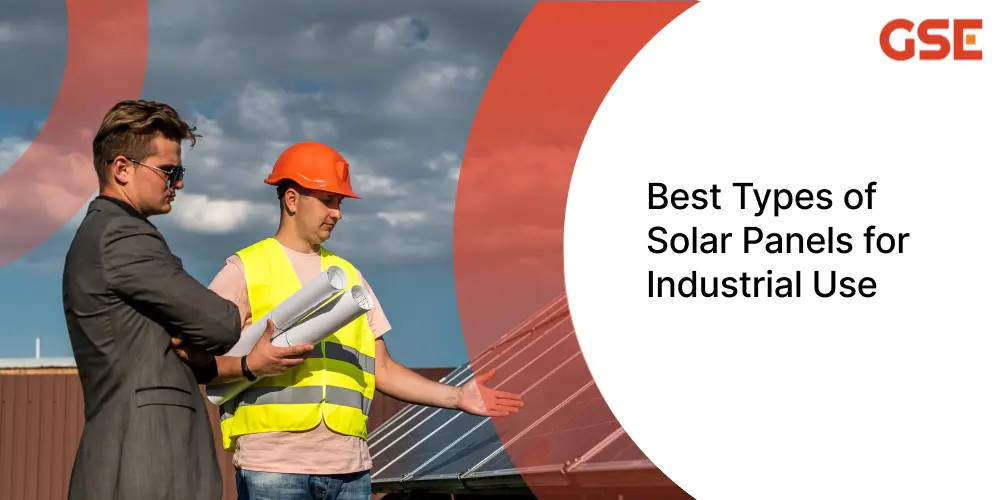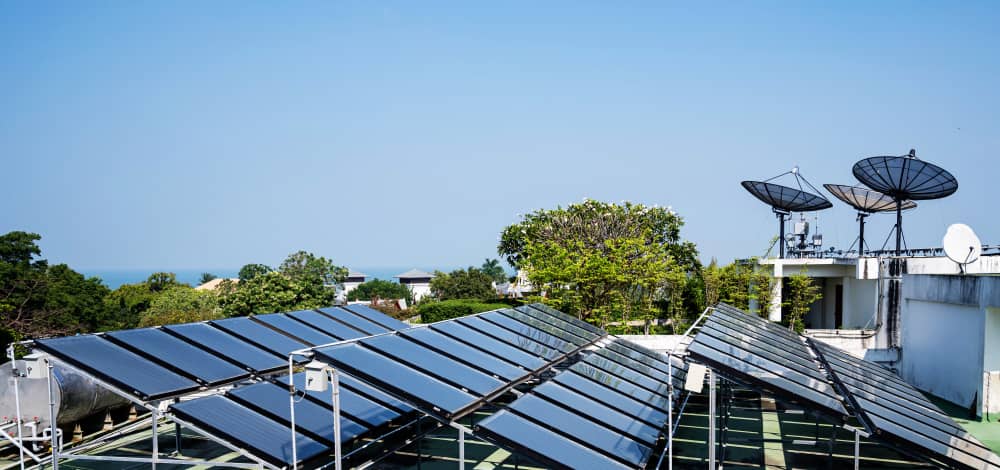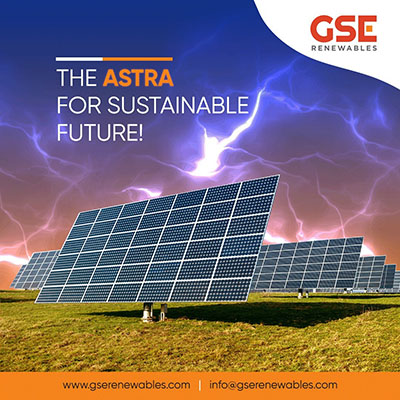500 kW Solar Power Plant Cost in Gujarat: Complete Price & Savings Guide
Nov 26

Welcome to GSE Renewables Energy, your trusted provider of solar panel installation services in India. Here, in this blog we will discuss how to select the best solar panels for industrial use to make the right choice for your business to save electricity costs. With the growing shift towards clean energy, understanding the pros and cons of each panel type is very important for choosing cost-effective solar solutions for industrial needs.
As global energy faces problems from political conflicts & supply issues, industries are now looking for more reliable and eco-friendly energy options. Solar for industrial use is rapidly gaining popularity, offering a reliable solution to reduce electricity costs. Installing solar panels for industrial buildings helps companies use less fossil fuel & support a cleaner, greener future.
There are several benefits to installing solar panel systems for industrial use:
Read More: Advantages of Solar Energy In Industry

Industrial solar panels are designed to meet the high energy demands of industrial applications. They can be utilized in both on-grid & off-grid solar panel systems. On-grid systems allow industries to feed excess power back into the grid on the other hand off-grid systems provide a reliable power supply even during the night or in remote locations. Industrial solar rooftops typically have ample space; they present a practical choice to meet substantial electricity demands.
Read More: Industrial Solar Rooftop
Investing in solar energy solutions for industry can be considered as a smart move for businesses aiming to reduce long-term energy costs & achieve sustainability goals. As energy demands rise & electricity prices also increase so many companies are looking for cost effective solutions to save the electricity cost.
At GSE Renewables Energy, we specialize in providing solar solutions for industrial buildings that are needed to meet your unique power requirements. But selecting the right system goes beyond just installing solar panels—it requires careful consideration of multiple factors to ensure optimal performance & maximum returns.
Considerations for selecting solar panels for industrial buildings:
The selection of optimal industrial solar panels requires knowledge about different market technologies. The selection of solar panel technology depends on the particular needs of your industrial solar power system regarding energy efficiency and space requirements and budget constraints.
GSE Renewables Energy delivers essential solar solutions to industrial clients which enables them to gain energy independence and sustainability through appropriate technology.
Let’s look at the common problems top solar companies face when setting up solar panels for industries.
Choosing the right solar panels for your factory means thinking about efficiency, cost, space, and your needs. At GSE Renewables Energy, we help you find the best solar solution to get the most value and save money over time. Contact us to learn about our rooftop solar options that support your green goals.
The dimensions and power output of industrial solar panels differ between 72-cell panels (1m x 2m) and 96-cell panels (1.04m x 1.6m) which produce between 350 to 480 watts. Their developers focus on two main goals: maximized energy production together with compact installation spaces.
Industrial solar panels usually produce between 300 and 600 watts of power per panel. The exact power depends on the brand, model and technology used.
Industrial solar panels maintain operational effectiveness for 25 to 30 years while their output power decreases by approximately 0.5% per year. The lifespan of industrial solar panels increases when they receive proper maintenance, while periodic inspections guarantee peak operational output.
Industrial solar panels achieve their highest performance levels between 19% & 22% but high-efficiency models reach above 22%. The actual efficiency of solar panels depends on their manufacturing quality & installation practices as well as how well they handle environmental elements.
Industrial facilities choose monocrystalline solar panels because they offer the highest efficiency (15%–22%) together with durability and extended operational life. These solar panels maintain their performance at high temperatures which makes them suitable for big-scale energy production in industrial facilities.
Solar energy serves multiple industrial purposes. Solar energy systems enable industrial operations through machine power generation and heating capabilities and water desalination and food processing and chemical operations and grid electricity reduction. Industrial solar systems generate two benefits by reducing power expenses and maintaining environmentally responsible business performance.
